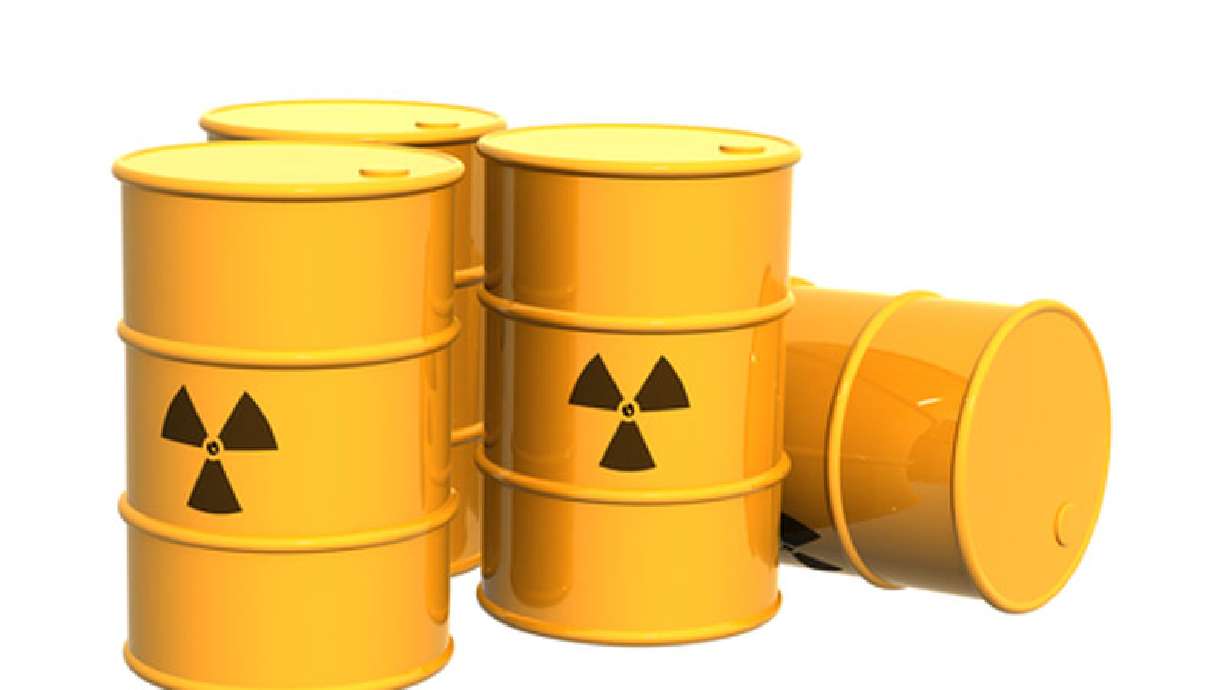Estimated read time: 2-3 minutes
This archived news story is available only for your personal, non-commercial use. Information in the story may be outdated or superseded by additional information. Reading or replaying the story in its archived form does not constitute a republication of the story.
SALT LAKE CITY — Proposed new regulations governing the storage of "significant" quantities of depleted uranium or other unique waste streams at EnergySolutions' Clive facility in Tooele County are open for public comment beginning Wednesday.
Crafted after more than a year of debate, research and packed public hearings before the state Radiation Control Board, the new requirements are intended to provide additional safeguards for the disposal of "unique" radioactive waste should it exceed 10 percent of the amount of "radioactivity" that can be stored at the site.
While state regulators have already put in place new restrictions on depleted uranium — a byproduct of the uranium enrichment process — this rule would contemplate other waste streams such as blended waste. EnergySolutions has sought to store blended waste — which would not exceed radiation disposal limits imposed by Utah — in a move that has brought opposition by top political leaders, including Gov. Gary Herbert and Rep. Jim Matheson, D-Utah.
Herbert has said he is opposed to its storage in Utah and members of the Radiation Control Board issued a policy position that acknowledges it poses no greater risk to public health and safety than standard Class A material, but as a practice they are opposed.
Waste blending is what happens during the processing of radioactive active material that cobbles together a variety of waste. Under federal regulations and current Utah requirements, if it results in a product that at the storage stage does not exceed the lowest classification of radioactivity, it can be disposed of here. Critics have said the level of radioactivity in the material at the time that it is processed — not when it is ready for disposal — should control where it can be safely buried.
The Nuclear Regulatory Commission is formulating its own rules governing the storage of blended waste — a process that critics said should take place before any of the waste is accepted in Utah.
The federal regulatory agency has said that it is opposed to waste blending for the purpose of "dilution." Under the proposed rule, EnergySolutions, as in the case of taking depleted uranium, would have to perform a site-specific performance assessment at Clive that models out the storage for a period of 10,000 years. The facility would also have to prove its safeguards protect against geologic events such as a return of Lake Bonneville, in which case the storage site would be submerged.
An analysis of the site would also have to be performed should the disposal of the waste result in an "unanalyzed condition" not covered under current state radioactive waste regulations.
Comments on the rule are being accepted until 5 p.m. Jan. 4 and should be submitted to Rusty Lundberg, executive secretary of the Utah Radiation Control Board, 195 N. 1950 West, Salt Lake City, Utah, 84116. Written comments can also be submitted via e-mail to rlundberg@utah.gov
E-mail: amyjoi@desnews.com








